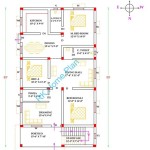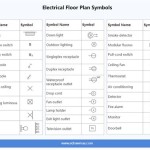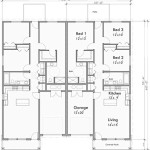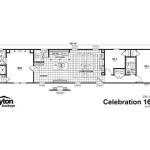Off The Grid House Plans
For individuals seeking self-sufficiency and a reduced environmental footprint, off-the-grid living presents an attractive lifestyle. A crucial first step in this journey involves meticulous planning and selection of appropriate house plans. Off-the-grid house plans differ significantly from conventional designs, prioritizing resource independence and resilience.
Key Considerations for Off-Grid House Plans:
- Climate and Site Analysis
- Energy Efficiency
- Water Management
- Waste Management
- Building Materials
- Budget
- Local Regulations
Careful consideration of the local climate and site conditions is paramount. The house's orientation, window placement, and insulation should be optimized for passive heating and cooling, minimizing reliance on energy-intensive systems. Analyzing the site's topography, soil composition, and sun exposure helps determine the optimal placement for the house and other essential components like solar panels and water collection systems.
Energy Independence in Off-Grid Homes:
- Renewable Energy Sources
- Energy Storage Solutions
- Energy-Efficient Appliances
Achieving energy independence relies heavily on integrating renewable energy sources. Solar panels, wind turbines, and micro-hydro systems can generate electricity, while solar thermal systems can provide hot water. Battery banks or other energy storage solutions ensure a continuous power supply, even when renewable sources are unavailable. Selecting energy-efficient appliances and lighting further reduces energy consumption.
Water management is another critical aspect of off-grid living. Rainwater harvesting systems collect and store rainwater for various uses, including drinking, bathing, and irrigation. Greywater recycling systems reuse water from showers and sinks for toilet flushing or garden irrigation, minimizing water waste. Well drilling or access to a natural water source may also be considered.
Sustainable Water Management Strategies:
- Rainwater Harvesting
- Greywater Recycling
- Water Conservation Techniques
- Well Drilling/Natural Water Sources
Effective waste management is essential for minimizing environmental impact and maintaining hygiene. Composting toilets break down human waste into compost, reducing the need for water-intensive sewage systems. Waste reduction strategies, like minimizing packaging and maximizing recycling, further contribute to a sustainable lifestyle.
Waste Management in Off-Grid Living:
- Composting Toilets
- Waste Reduction and Recycling
- Greywater Systems for Irrigation
Choosing appropriate building materials is crucial for durability, energy efficiency, and environmental sustainability. Locally sourced materials minimize transportation costs and environmental impact. Natural and sustainable materials, such as timber, straw bales, and recycled materials, offer excellent insulation and reduce the carbon footprint of construction.
Building Material Considerations:
- Locally Sourced Materials
- Sustainable and Natural Materials
- Recycled Building Materials
- Thermal Mass for Temperature Regulation
Developing a realistic budget is essential for successful off-grid construction. Costs can vary significantly based on the size and complexity of the house, the chosen energy and water systems, and the building materials. Thorough research and consultation with experienced off-grid builders can help establish a comprehensive budget.
Budgeting for Off-Grid Construction:
- Cost of Land and Site Development
- Materials and Labor Costs
- Renewable Energy System Installation
- Water Management System Installation
Understanding and complying with local building codes and regulations is imperative. Permits may be required for various aspects of off-grid construction, including septic systems, well drilling, and renewable energy installations. Consulting with local authorities ensures compliance and avoids potential legal issues.
Navigating Local Regulations:
- Building Permits and Inspections
- Regulations for Septic Systems
- Regulations for Well Drilling
- Regulations for Renewable Energy Systems
Off-the-grid house plans necessitate careful planning and consideration of various factors to ensure self-sufficiency, resilience, and minimal environmental impact. A holistic approach incorporating energy efficiency, water management, waste management, and sustainable building practices is essential for creating a comfortable and environmentally responsible off-grid home.

Off The Grid House Plans Home Design

Cottage Style House Plan 1 Beds Baths 688 Sq Ft 556 3 Houseplans Com

How To Design An Off Grid House Greenbuildingadvisor

Wanna Get Away 10 Tiny House Plans For Off Grid Living Dfd Blog

The Off Grid Cabin Floor Plan Small Living In Style

Off Grid Archives Small Wooden House Plans Micro Cabin Garden Shed Cottage Blueprints

Building An Off Grid House What You Need To Know

Passive Solar House Plans For Our Off Grid Homestead Byexample Com

A Guide To Off Grid Architectures Archdaily

20 Fresh Off Grid House Plans Image Design Tiny Cabin








